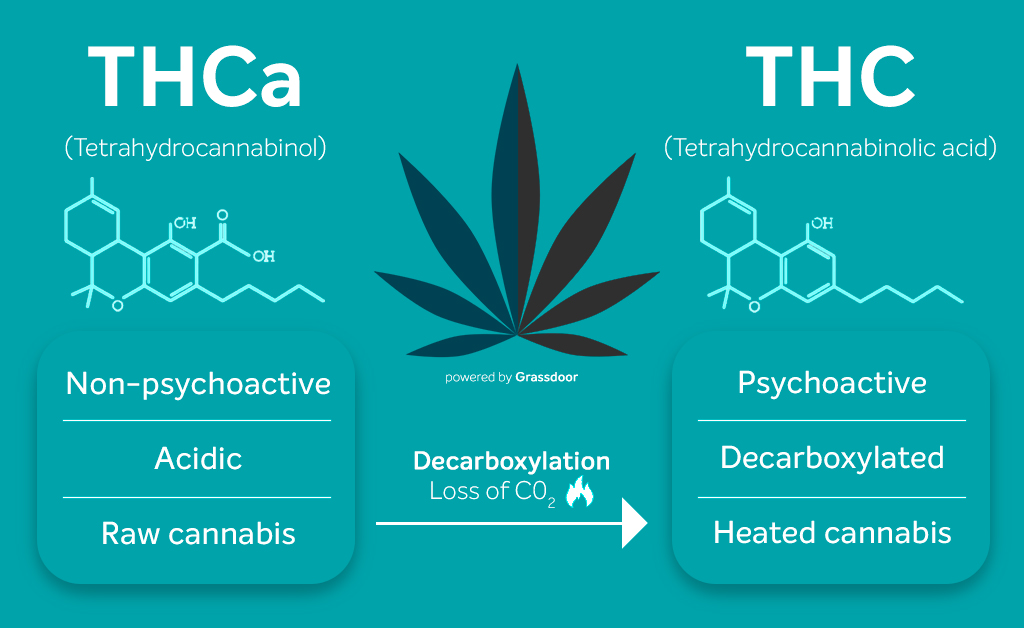In recent years, there has been a growing interest in the therapeutic potential of cannabinoids found in cannabis plants. One such cannabinoid that has been gaining attention is THCa. But what exactly is THCa, and what are the benefits of this compound? Let’s dive into the world of THCa and explore its potential health benefits.
Understanding THCa:
THCa, or tetrahydrocannabinolic acid, is a non-psychoactive compound found in raw cannabis plants. When cannabis is harvested and dried, it contains THCa instead of THC, the well-known psychoactive compound responsible for the “high” associated with marijuana use. THCa must undergo a process called decarboxylation in order to convert into THC and produce psychoactive effects.
Decarboxylation:
Decarboxylation is a process that involves applying heat to cannabis plant material to convert THCa into THC. This process is commonly done through smoking, vaping, or cooking cannabis-infused products. By decarboxylating THCa, the compound becomes active and can interact with the endocannabinoid system in the human body.
Benefits of THCa:
THCa offers a wide range of potential health benefits without the psychoactive effects of THC. Some of the benefits of THCa include:
- Anti-inflammatory Properties: THCa has been shown to have anti-inflammatory properties, which can help in reducing inflammation and pain in the body.
- Neuroprotective Effects: Research suggests that THCa may have neuroprotective properties, which can help in protecting the brain from damage and degeneration.
3.Anti-emetic Properties: THCa has been found to have anti-emetic properties, making it beneficial for individuals experiencing nausea and vomiting.
4.Antioxidant Benefits: THCa acts as a powerful antioxidant, helping to protect cells from damage caused by free radicals and oxidative stress.
Legality:
The legal status of THCa varies depending on the jurisdiction. In some regions, THCa is considered a controlled substance, while in others, it is legal for medical or recreational use. It is essential to check the local laws and regulations regarding the use of THCa before incorporating it into your wellness routine.
In conclusion, THCa is a promising cannabinoid with potential health benefits, including anti-inflammatory, neuroprotective, anti-emetic, and antioxidant properties. While more research is needed to fully understand the therapeutic effects of THCa, it is clear that this compound holds promise in the world of natural medicine. Whether you are looking to alleviate pain, reduce inflammation, or support overall wellness, THCa may be a valuable addition to your health regimen.

